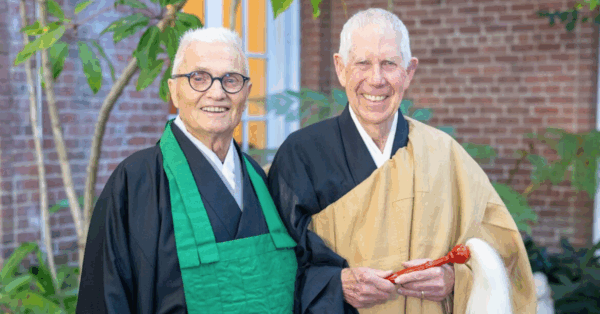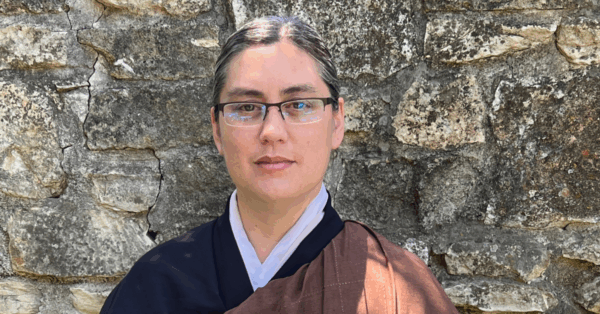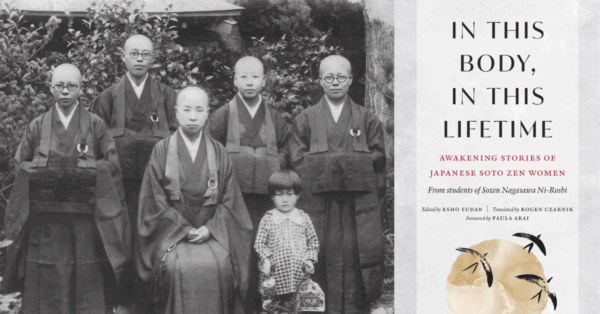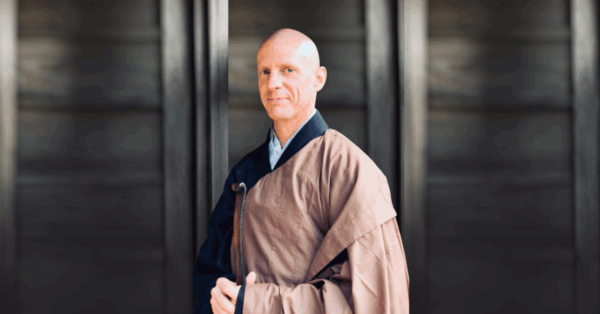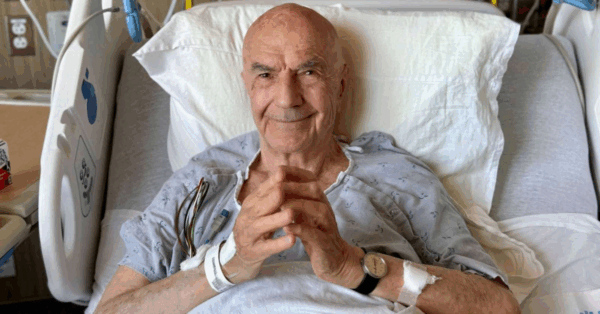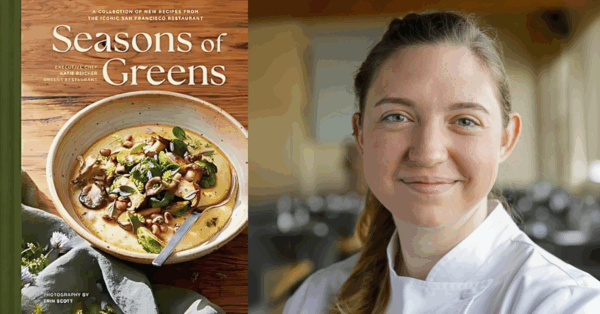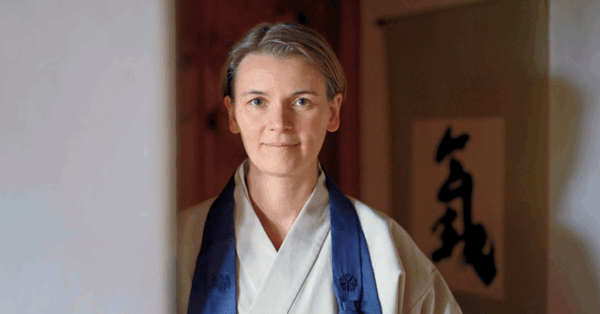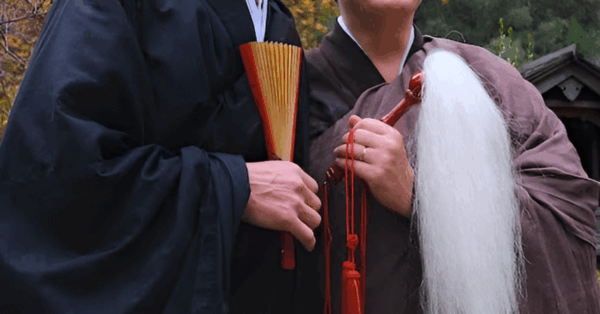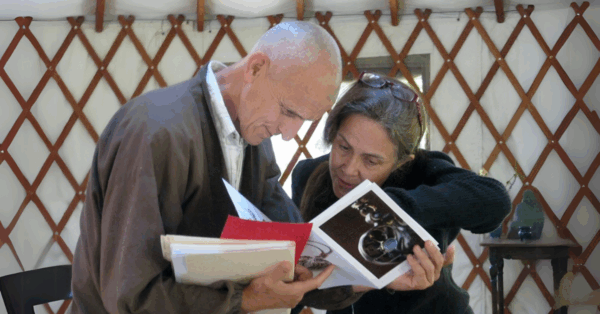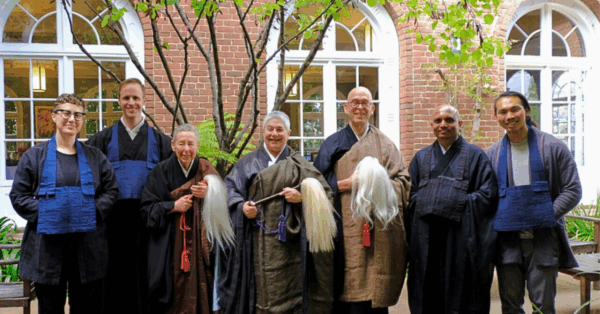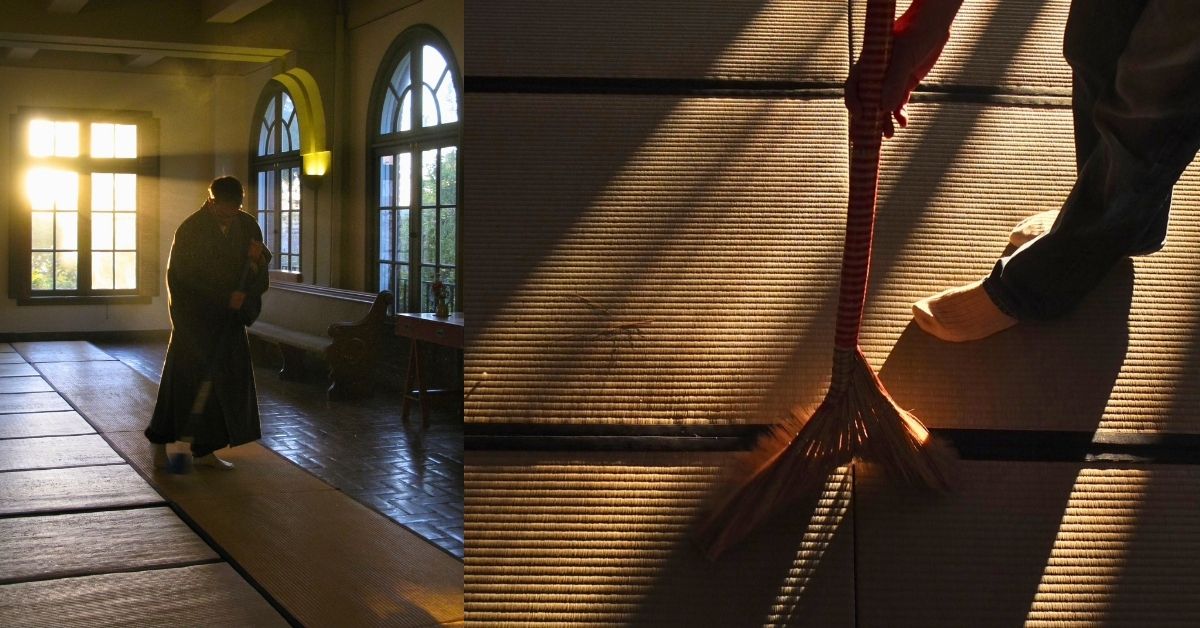
Photos by Shundo David Haye.
An Interview with City Center Abbot Dōshin Mako Voelkel and writer Genine Lentine
By Tova Green
Beginning Sunday, January 21, Dōshin Mako Voelkel and Genine Lentine, a priest and a poet, will be offering a four-session monthly online workshop, Contemplative Tending: Soji in Creative Practice. This workshop is inspired by the Zen practice of soji, or temple cleaning. Mako describes soji: “When we put our body and mind wholly into the present moment as we’re moving [from zazen] into activity, [soji takes] that zazen mind, that spaciousness, off the cushion and into motion.”
The idea for this workshop originated as Genine noticed how restorative and grounding it felt to be part of soji sessions in residential practice at San Francisco Zen Center. “I saw how the whole space became lighter and more articulated when a group turned their attention each to a task, within the brief window the soji session presented.”
Genine has been offering workshops exploring how soji can support creative work since 2021. Initially these workshops were for writers; Genine widened them as she saw how helpful it can be for anyone to explore incorporating the practice of soji into their life. She and Mako first met at Tassajara in 2007, and again at City Center when Genine was Artist-in-Residence. They share an appreciation for bringing Zen practice to the activities of daily life as well as to creative endeavors.
Mako notes, “The practice of Soji is such a great way of not thinking, just being. Not trying to accomplish anything is liberating—getting to where you want to be without knowing it.”
“That paradox,” according to Genine, “is at the heart of the workshop—not having an outcome in mind, just being immersed in caring and tending, but then, this of course can result in actually getting a surprising amount done!”
The workshop includes three hands-on periods of soji during which each participant focuses on an activity that calls to them on that day. Everything from changing the cat litter to stretching a canvas, from replacing a printer cartridge to organizing drafts of a poem.
“Sometimes strong emotions, such as shame or grief, may arise, along with the all too familiar narratives, ‘I should do this on my own,’ or ‘I’m so bad at filing.’ The workshop provides space to notice these patterns and see how there might be an opportunity to shift them. The prevailing feeling in a session can be tender at times, as these ostensibly simple tasks can deliver someone directly into a harsh story or judgment of themselves they might be carrying. And it’s amazing how those stories can be lodged right there in a stack of papers on the desk, so you turn to the stack of papers on the desk, and suddenly, it’s this oddly efficient path toward looking at whatever it is that’s coming up.”
As each person is supported by other participants who are turning their attention to their own soji tasks, their attention is amplified. “One guiding aspect of the workshop is the sense of being held within the group, within a limited time, to do a task and then set it down,” according to Genine. Having that limit, or container, can create a kind of freedom. A sense of feeling lighter.
Mako noted, “I’m on my computer a lot, doing many tasks. When I get into ‘the doing mode’ I don’t stop. However, when I remember the feeling of soji I put away my manager mind for a moment. There’s a pause in which something else happens. I experience a focused mind instead of being caught up in the productivity groove, never being able to catch up. The structured hands-on time for soji and for creative projects during the workshop may enable people to start the thing that has been difficult for them to begin.
“Sometimes you have to get this escape velocity from the inertia of not starting the thing that you want to start. So just doing it in these small chunks, you’re getting a little momentum. And that little tiny bit of momentum sometimes is all it takes. Many studies show that once you’ve begun something the rest can follow. But if you don’t have that opening, you can remain stuck for a very long time. So just seeing that ‘aha’ moment, I think it will be a very joyous time for folks. I’m looking forward to seeing that.”
If you would enjoy a refreshing approach to relating to your everyday tasks, we hope you’ll consider joining the workshop. And if you have a friend or family member who would enjoy this practice, you may want to invite them to join you in participating as well. No prior experience with Zen practice is necessary. All are welcome!
Register for Contemplative Tending: Soji in Creative Practice.


